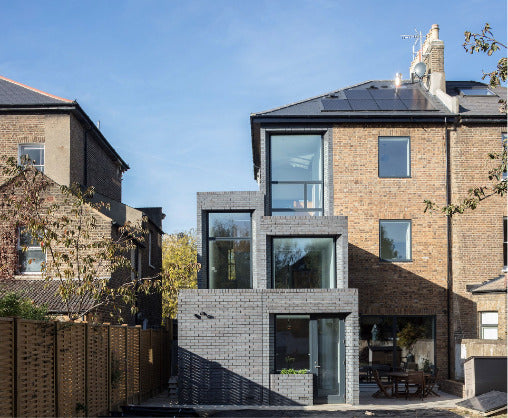Everyone in the planning world is talking about it - ‘the birds and the bees!’ Planning has become sexy! Or has it?
The ‘birds and the bees’ is a phrase commonly used to explain how babies are made – the reproductive system.
What? We hear you say, have ‘the birds and the bees’ got to do with Planning? We’re talking about Biodiversity net gain (BNG). Let us explain…
What is biodiversity net gain (BNG)?

This sexy subject has become very topical in the planning press over the last month. On 12th February 2024, the government set new regulations in motion that means certain new types of development must be designed to mitigate any environmental damage created by the development and they must ensure that nature, on and around the site, is left in a better state than it was found.
Gov.uk describe Biodiversity net gain as “Biodiversity net gain (BNG) is a way of creating and improving natural habitats. BNG makes sure development has a measurably positive impact (‘net gain’) on biodiversity, compared to what was there before development.”
Why is biodiversity net gain (BNG) important?
So what is Biodiversity? Why is it important and why are developers being required to provide a ‘Net Gain’ in biodiversity terms as part of new developments?
Nature relates to wildlife such as ‘the birds and the bees’ amongst others including hedgehogs, badgers, dormice, bats, newts, fish, frogs and other native species. Just as important, it also includes their habitats such as trees, hedges, shrubs, flowers, plants, grass, rivers, ponds and other natural habitats found in towns and the countryside.
Biodiversity is the assortment of living things and their association with the ecosystem they live within. Us humans share our environment with many other species. This ranges from the birds and the bees in our home gardens and parks, to the wild bears in the forests and the whales in our oceans. All these species and their natural habitats are being affected by human activity at local, national and international level.
Our gardens can offer homes to frogs, newts, birds, hedgehogs, foxes, insects including bees. But without homeowners and now developers creating habitats for these important species by planting hedges, grass lawns, flowers and plants and fruit trees, ponds and streams, these species will continue to come under threat.
Without us taking responsibility to protect and promote all ecosystems, we run the risk of causing significant harm to ourselves and the planet we live in.
The changes that came in force in England on 12th February under the Environment Act 2021, require developers of certain types of development to measure and calculate, up front at the start of the development process, what the biodiversity level of their site is and then include provision of biodiversity benefits such as native tree and hedge planting, wild flowers, bat and bird nesting boxes, ponds, water features to name a few. Developments that provides an increase in biodiversity of more than 10% (source) will be generally be supported by planning authorities but those that don’t could now be refused planning permission.
It is worth noting that there are some types of developments that are exempt from BNG regulations. These include (amongst others):
- existing planning applications which were submitted before the new regulations came into force on 12 February 2024;
- applications for a variation to an extant planning permission that was approved prior to 12 February 2024;
- Householder applications eg some house extensions, conservatories or loft conversions;
- Self-build and custom build home planning applications.
For a temporary period up until 2nd April 2024 the following developments are also exempt:
- residential developments less than 10 units, on site 1 hectare or less;
- commercial development where floor space created is less than 1,000 square metres or total site area is less than 1 hectare.
What happens if your development site cannot provide any biodiversity net gain (BNG)?

Biodiversity credits is an approach accepted by the Government that enable developers to meet their BNG obligations. Developers can pay adjoining landowners and farmers to create a ‘habitat bank’ on their behalf on the neighbours land. Biodiversity loss from developments such as removing trees, grass, hedges and ponds, must first be avoided as much as possible and then any impact should be appropriately mitigated on-site. When on-site mitigation is impossible, or poses a threat to project viability, developers can purchase Biodiversity Units to compensate off-site.
Conclusion
For more information contact a local, qualified ecologist who can advise on the necessary requirements and undertake BNG calculations on your behalf. Remember, that you must commission an ecologist at the outset of your project and seek advice before you begin any development work. If BNG is applicable to your type of development, then the ecologist must undertake the initial calculation right at the beginning of the project.
Read some more of our latest insights from Planning Genie HERE


